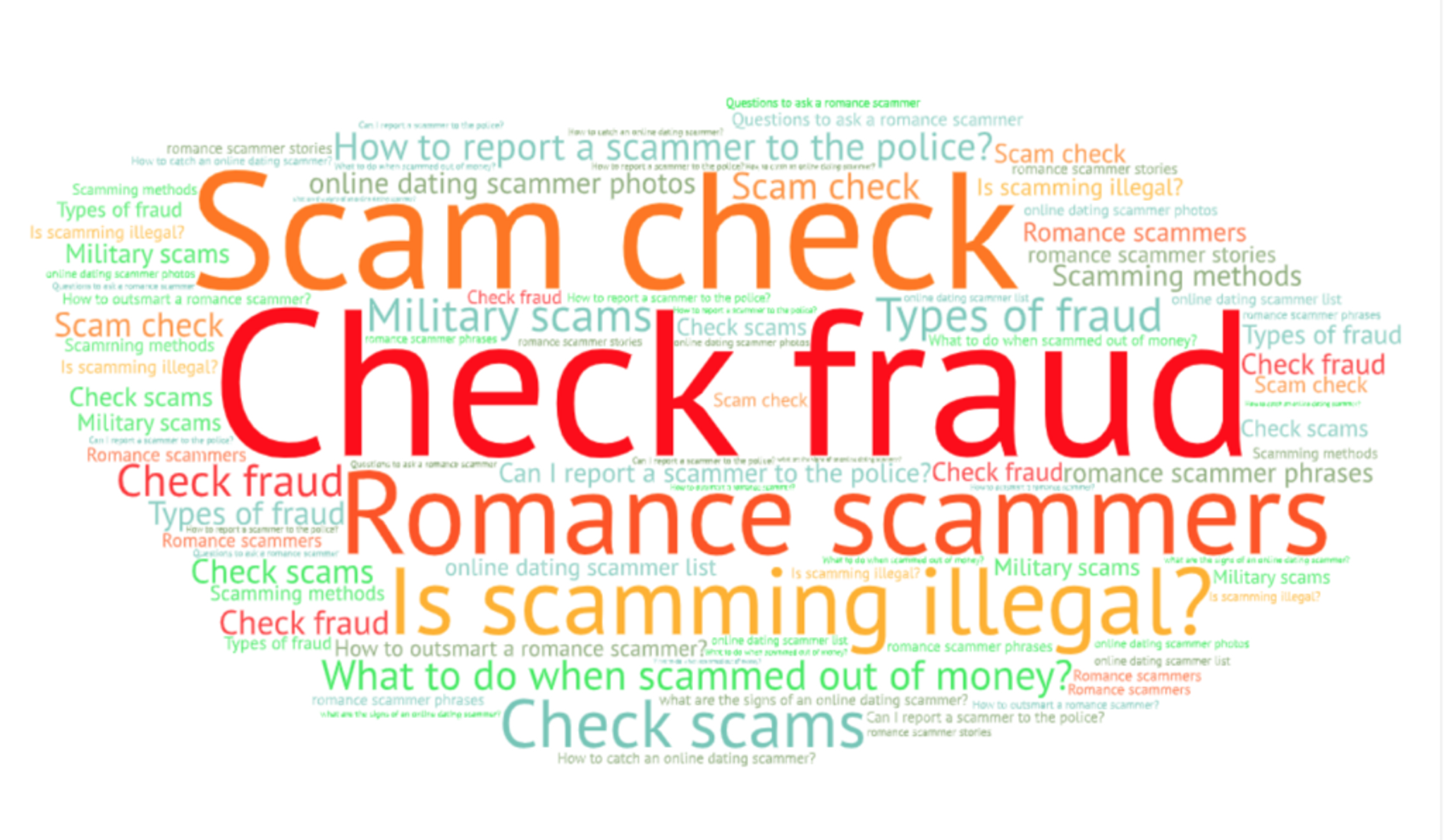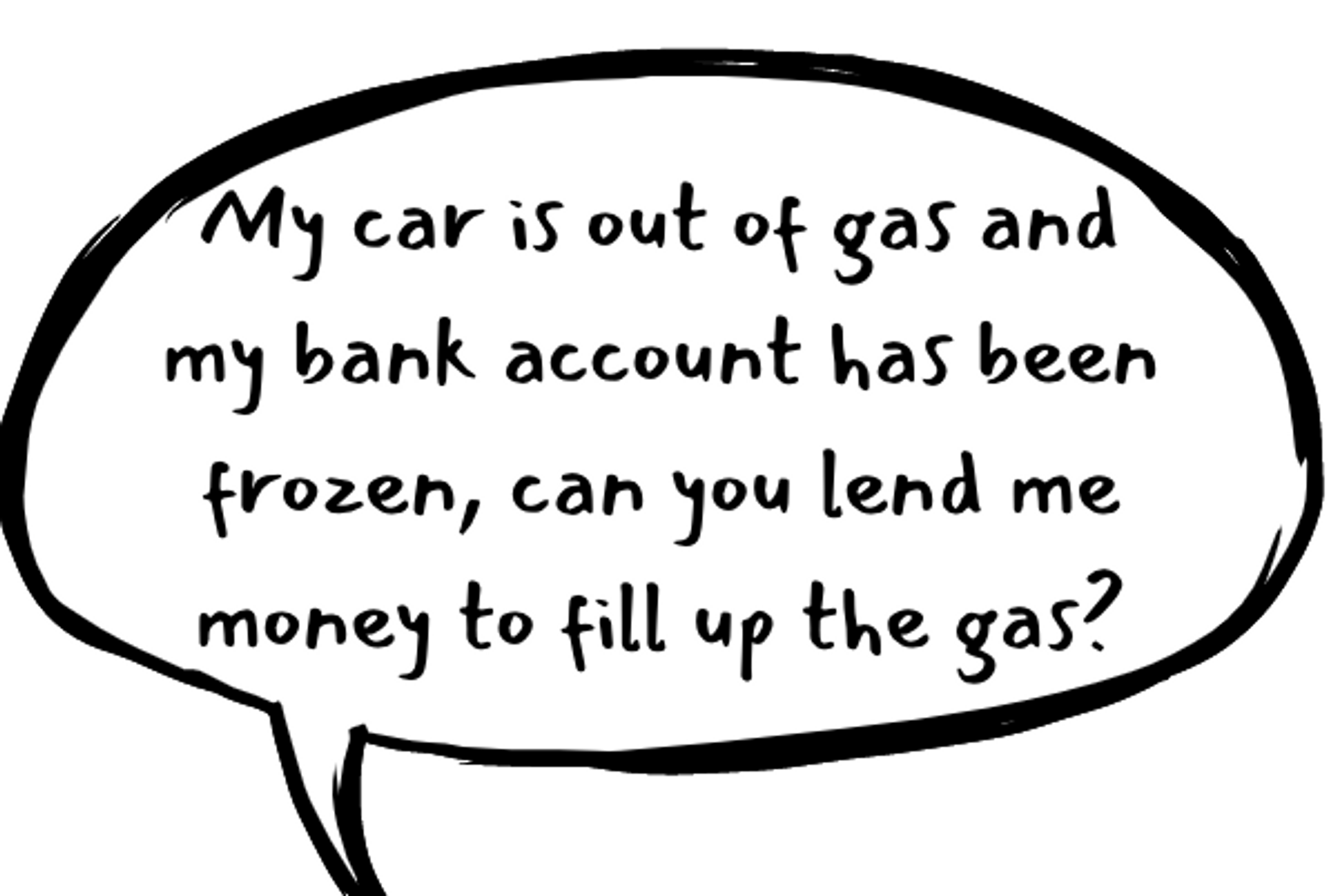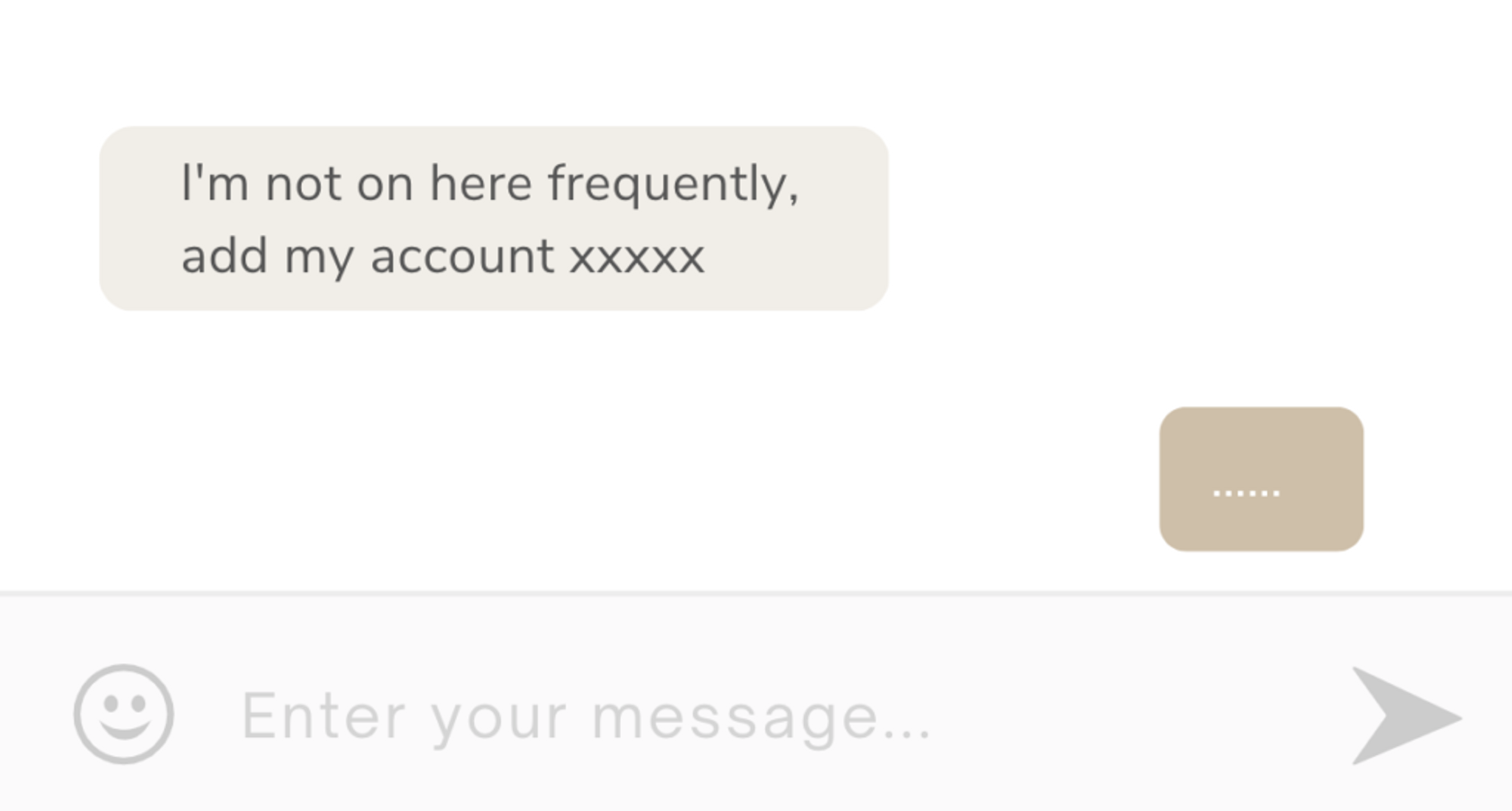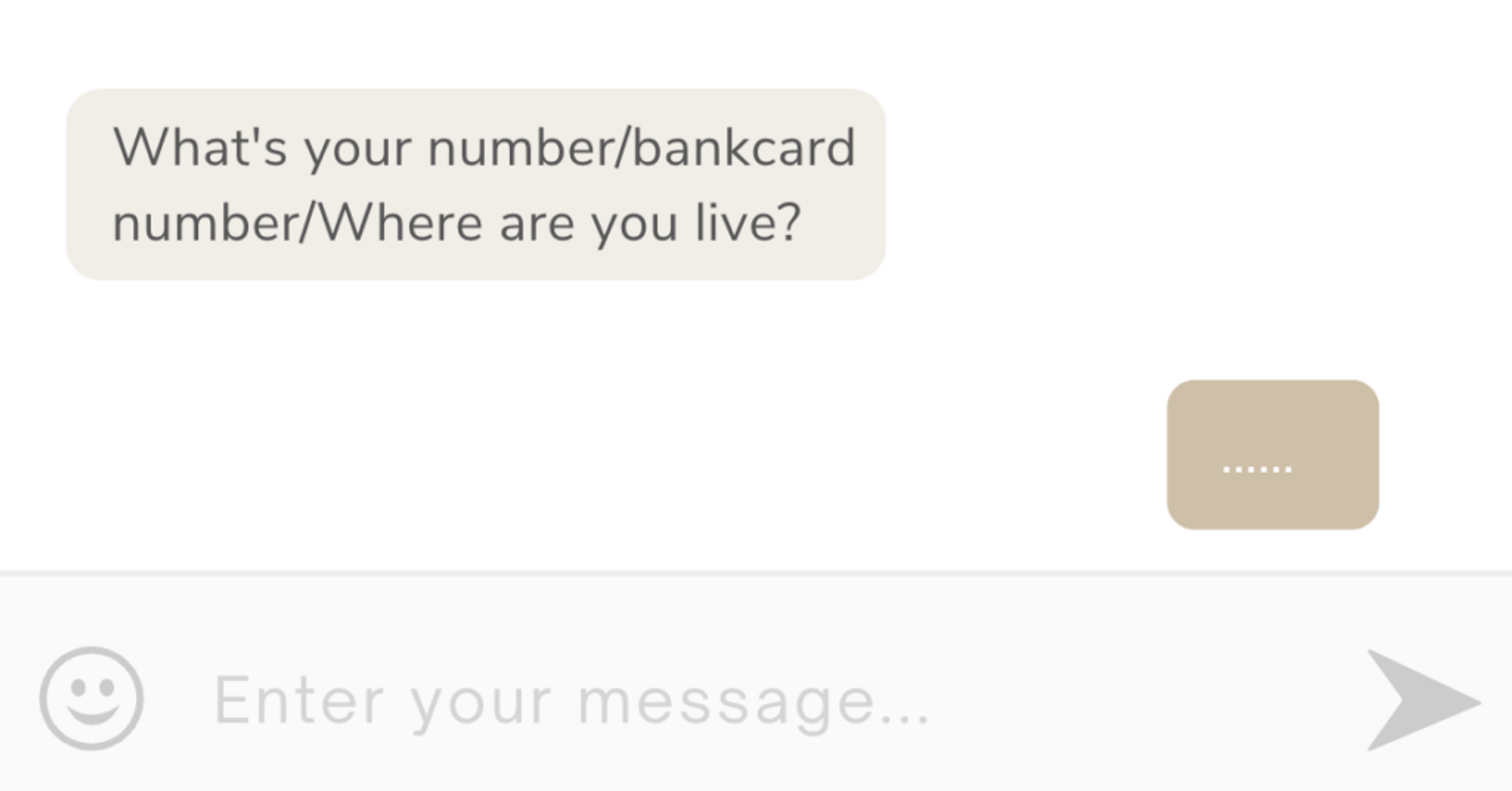How to tell a romance scammer by asking questions? The answers are in this blog.
Navigation:
In this article, you could find the newest romance scams in 2023, we reported 100+ victims and will unveil scammers.
Content you must read, click and jump directly:
- What is online romance scam?
- 4 common types of romance scams
- Scammers’ phrases (Victims’ Experience)
- How to stay alert?
- 20 Questions to ask a romance scammer (If necessary)
- What you should do when scammed out?
- Is scamming illegal?
- How to report a scammer to the police?
- Your match is a soldier? Trap is waiting!
- How to outsmart a romance scammer?
- Is there an online dating scammer list?
More Reading Source
Introduction

When it comes to protecting yourself from online dating scams, the terms in the pic are all important to know.
Romance scammers are the biggest danger in dating apps/sites. Not only do they cheat their victims and scam them out of money, but they can also seriously hurt the feelings of users.
What is Online Dating Scam?

Online dating scam is a type of fraud that has become increasingly common in recent years.
Romance scammers use online dating apps/sites to gain the trust of their victims and then exploit them for financial gain.
These scammers are known for using a variety of scamming methods, including posing as military personnel to gain sympathy, creating fake profiles, and using scripts to manipulate their victims.
According to the Federal Trade Commission (FTC), in 2022, nearly 70,000 people reported a romance scam and reported losses hit a staggering $1.3 billion. The median reported loss was $4,400.
The impact of online dating scams goes beyond financial loss, as victims may also experience emotional trauma and feelings of betrayal.
That’s why it’s important to be able to identify romance scammers and protect yourself from their traps.
In this article, we will discuss some of the signs of an online dating scammer and provide 20 questions you can ask to catch a romance scammer in the act.
Common Types of Fraud
Romance scammers use a variety of tactics to cheat their victims, including but not limited to creating fake profiles, using fake photos, and making false promises.
Here are some common types of fraud:

1. Fake Photos
With a gorgeous appearance, expensive clothes, and decorated houses, scammers use fake photos that contain the above characteristics to lure their victims.
These tricks will make it difficult for victims to verify a scammer’s identity and will increase the likelihood of falling for a romance scam.
#Using AI-generated photos
Scammers may use artificial intelligence (AI) technology to create fake pictures that look like real people.
But you can tell them by some details – such as hair and fingers, which are difficult to be generated for AI.
#Using celebrities’ photos
Scammers may use photos of celebrities in niche fields or use celebrities/influencers from other countries/regions to avoid detection.
You could search for it on Instagram, or Pinterest, or share the photo in some forums, there must someone tell you who the person in the photo is.
#Using others’ photos
Scammers may use photos from other networking accounts without consent, and they even disguise their identities, pretending to be the person in the photo.
If you found a suspect using photos of someone you know, you could ask the person first and then report the suspicious profile.
2. Abnormal Profiles
In addition to fake profile pictures, romance scammers also provide false or misleading information in their profiles. Here are some common red flags:
Abnormal profile info can help romance scammers build trust with their victims and manipulate them into providing more personal information or even money.
#Writing the Same Answer to all Prompts
When scammers sign up for an account, they will start “hunting” for victims quickly, so they will just copy and paste to all prompts.
#Using Broken English (or other languages)
Some scammers are not native speakers, and they usually use translators. So if you say slang, your match does not understand it and his/her grammar is weird during the chat, then you are probably matched a scammer.
#Using Seductive Words
“I wanna my partner to be loyal…”
This means the scammer will make you fall in love with him/her and then gaslight you into giving him money to show your loyalty to him/her.
“I’m a sugar daddy/sugar mommy…”
Sounds good? But free things usually need you to pay more price!
Sugar mommy/daddy will asks you to add her/his social accounts, and asks your bank card number/PayPal account/or other finance accounts. In order to dispel your wariness, they may indeed transfer the money to you, but then there will be other ways to transfer money from your account (yes, scammers are tricky)
So stay alert to those allusive words, and don’t trust a user you never met.
3. Ask for Money
This is the stage that scammers love most, when they get your trust, asking for money for various reasons is the time for them to hurt you.
#Paid Content
Scammers will ask their victims to buy their “content” and paid services, such as OnlyFans content or prostitution service.
Of course this is not to say that all people are liars, but most of the users who promote their service on dating apps and ask for payment, are maybe not themselves (maybe a beautiful woman is actually a man or vice versa) and it is also possible that you paid but get nothing.
#Asking for Gift

Some scammers always make up some lies, like how bad their birthday is, how bad their life is, how poor they are, etc.
They try to get sympathy from others and then ask for money or gifts. Maybe it’s just a small amount but they will lie to many people at the same time.
This is the scam with the highest success rate, because many people feel that the price is not expensive, and it can show their kindness.
#Borrowing Money

Scammers know that people are more than happy to help someone in an emergency, so they will talk about their embarrassing situation, then borrowing money for various reasons and promise that they will pay it back quickly.
But the money is in his pocket, it is not easy to get money back. Scammers will disappear immediately and block you.
Do you think that you can handle it if you know his/her identity? In fact, everything is fake!
4. Change Location Frequently
Romance scammers may change their location frequently to avoid detection. If someone you are talking to claims to be in one location but then suddenly changes their location, it may be a sign that they are not being truthful.
What are romance scammer phrases?
Ask to Change Platform

Sending QR code/ numbers/ OnlyFans/ telegram/etc, romance scammers will first try to move the conversation off the dating app and onto other platforms to avoid detection.
Be wary of requests to add them on other social media accounts or messaging apps, especially if they are sending you QR codes or asking for your personal information.
Asking for Personal Info

A romance scammer may ask for personal information such as your home address or bank card number under the guise of sending you a gift or transferring money to you. Do not give out personal information to someone you have just met online.
Asking for investment/change to other platforms

Romance scammers ask for investment in a fake business or for you to change to another platform to continue the conversation. These requests are often made under the pretense of helping you make more money, but they are actually just ways for the scammer to take your money.
Asking for Inappropriate Photos

A romance scammer may ask for inappropriate photos or videos, claiming that they want to see more of you. These requests are a violation of your privacy, and it is important to remember that once you send these types of photos or videos, you lose control of them.
Asking for a meetup but need money for the journey

Romance scammers may try to set up a face-to-face meeting but claim that they need money for the journey or for some other reason. Do not send money to someone you have not met in person, as they may simply take the money and never show up.
Sending links of unknown origin

Romance scammers may send links to you claiming that they are important or interesting. However, these links may contain malware or lead to phishing scams that can compromise your personal information or financial security.
Suspicious Vocations

Romance scammers may claim to have unusual or suspicious vocations, such as working for a government agency, being a military officer, or being involved in cryptocurrency. Be wary of these claims, especially if they are used to explain why they cannot meet in person or communicate through normal channels.
By being aware of these types of red-flag requests, you can better protect yourself from romance scammers and avoid falling victim to their scams.
Romance scammers often use certain phrases to gaslight their victims and gain their trust.
- “I love you!” Romance scammers say this early on to make the victim feel loved and special.
- “You are my soulmate.” makes the victim believe that they have a special connection.
- “I can’t wait to be with you.” the victim will feel desired and wanted.
- “I need your help” helps to ask the victim for money.
- “I’m in a difficult situation” arises the victim’s sympathy.
- “I’ll pay you back as soon as possible” reassures the victim that they will repay any money they borrow.
- “I’m not like other people” makes the victim believe that they are trustworthy and different from other people.
Although not everyone who uses these phrases is a scammer, they are commonly used by romance scammers to lure and manipulate their victims.
How to Stay Alert?

Staying alert is key to avoiding scams. Here are some tips on how to stay alert:
Google Suspect Users
One way to check if a user is a scammer is to search for their name or photos online. Scammers often use fake photos or identities, so doing a quick online search can reveal if they are using someone else’s identity.
Beware of Unreasonable Requests
Scammers often make unreasonable requests, such as asking for personal information or money. If a user is asking for something that doesn’t feel right, it’s best to trust your gut and be cautious. Never engage in a naked video-chat/photo request as it may put you at risk of blackmail.
Keep Your Privacy
Never tell your exact personal information such as your home address, phone number, or personal email address to someone you’ve just met online. Scammers can use this information to steal your identity or commit other crimes.
Caution of Offline Meetup Request
If someone you met online wants to meet you offline, be cautious. Scammers often use this as an opportunity to commit crimes, such as theft or assault. It’s best to meet in a public place and let someone you trust know where you are going.
Remember, if you ever feel uncomfortable or suspicious about someone you met online, it’s best to trust your instincts and proceed with caution. If you suspect you have been the victim of a scam, report it to the relevant authorities and seek assistance.
20 Questions to Ask a Romance Scammer
If you’re sure that the match is an online scammer, you’re highly recommended to stop the chat immediately and report the scammer in time to avoid more losses.

If you are not sure, then the questions below may be useful. You can tell whether the match is a real user or not by their answers:
Questions about Specific Experiences
Scammers make up sound-real stories, but not in every detail. So if you ask them one thing many times (but in different ways), you might find logical flaws.
- Can you tell me more about your experience with [specific event or situation]?
- How did you feel when [specific event or situation] happened?
- Why did you make the decision to [specific action or behavior]?
- Can you walk me through the steps of [specific process or activity]?
- What were some of the challenges you faced while doing [specific task or project]?
Questions about Family
These questions will help to reveal whether a person’s backstory is real or not. Scammers usually have difficulty fabricating a convincing family history.
- Is there any story of your name?
- Is there anything memorable about your childhood?
- What’s your family like?
- Do you have any siblings?
- Where were you born/raised?
But with the help of AI (such as ChatGPT), scammers could make their backstory more “real”. So what we can do is intelligently ask scammers repeatedly (at different times and in different ways) and try to find holes in their answers.
Questions about Location
These questions can help you identify whether someone is using a VPN or not. Scammers use tools to disguise themselves, but they also struggle to provide details about the local area.
- Are there any specialties? Food/Natural Scenery/Historical Attractions?
- Can you recommend some local restaurants?
- What kind of dishes/food do you prefer? Why?
- What’s your insta/twitter/fb?
- Why did your location change?
If their answers come from Google, without any details, and their location changes frequently without reasonable explanation, then he/she’s probably a scammer.
Questions about Investment
If someone claims to be an investment consultant, asking for official documentation and references can help you identify whether they are legitimate or not. Scammers may try to avoid answering these questions or may provide fake documents.
- Can you provide official docs? (But if they send you a link, don’t click it directly, because some scammers will imitate the official site and build fake ones to deceive people. And once you enter the site, all personal information on your phone (such as ID, and bank card info) may be leaked.)
- Do you have any references or contacts who can vouch for your claims?
- Can you explain your role in [specific project or situation]?
- Are there any legal issues related to [specific topic or situation]?
- Can you describe your qualifications or training related to [specific topic or situation]?
Scammers usually claim that an investment is encouraged by the government and will only make money and has no risk. So asking them for many detailed sources from the authorities.
Usually, you will get no response and a new topic. And scammers may stop chatting, block you, or even report you (But don’t worry, the mediator will be on your side.)

It’s important to note that these questions are not foolproof and scammers may still be able to deceive you.
It’s always best to be cautious and avoid sharing personal or financial information with someone you’ve just met online.
REMEMBER: if you do suspect someone is a scammer, just report them and stop chatting, and leave them to the mediator/department.
What to do when scammed out of money?
Many victims only realize they have been scammed out when they lose a lot. And then some people will yell at the scammers, but forget to call 911 in time, so the scammers have a lot of time to delete their accounts and hide evidence.
And the victims lose the best time to get back their properties. So what should you do when scammed out?
- Keep Calm and Stop Chat
- Scammers are persuasive and cunning, if you lose mind and yell them, they may disappear immediately and you can never find them again (because all the information of them is fake, even the bank card) So keep calm and find an excuse to stop chatting, don’t let the them know that you know the truth.
- Report Scammers
- Most dating apps/sites have a feedback or report option where you can report the scammer. So you can report the scammer to the apps/sites mediators where you met the scammer.
- Additionally, you can report the scam to the officially established site for reporting scammers: https://reportfraud.ftc.gov/#/
- When reporting scammers, you could provide as much information as possible about the scammer and the frauds (including their profile information, photos, location, display name, email/number/other ways of contact)
- Block the Profile
- After reporting the scam, it is important to block the scammer’s profile to avoid further contact or losses.
- Ask for Help from the Police/Related Department
- You can file a report with the local police or with the FBI’s Internet Crime Complaint Center (IC3).
- Provide as much information as possible, including any communication you had with the scammer and any documentation of money transfers or payments.
- Ask for Help and Assistance from Dating Apps
- Dating apps/sites is a valuable resource in helping you locate the scammer. They may have access to more information about the scammer and can work with law enforcement to track them down.
- Learn from the Experience:
- After being scammed, it’s important to take some time to reflect on what happened and learn from the experience. Consider how the scammer was able to gain your trust and what warning signs you may have missed.
- Use this experience to be more cautious in the future and to protect yourself from similar scams.
Conclusion
Romance scammers are always on the lookout for unsuspecting victims to scam, and it’s up to us to protect ourselves.
By being aware of the various types of scams, knowing how to spot red flags, and taking necessary precautions, you can stay safe while using dating apps/sites.
Don’t fall for the tricks of romance scammers, and always trust your gut feeling. With these tips in mind, you can surf safely and enjoy online dating.
FAQs
Is scamming illegal?
Yes, scamming is illegal.
Depending on the specific circumstances of the scam, it may be considered a criminal offense, a civil offense, or both.
The penalties for scamming can vary widely depending on the severity of the crime, but they can include fines, imprisonment, and restitution to the victim.
So if you are scammed out, call 911 and all people will help you. Don’t think about cheating others online, after all, punishment is not a joke.
How to Report a Scammer to the Police?
If you have been scammed and wish to report the scammer to the police, here are some steps you can follow:
- Collect all evidence: Gathering all evidence related to the scam, including emails, text messages, receipts, and any other relevant documents. This will help the police to investigate the scam.
- Contact your local police: Calling the police or go directly to the police station. Explaining the situation and provide them with all the evidence you have collected.
- Contact the FBI: If you lost much or if the scammer is located in another country, you could report the scammer to the FBI.(Or you can do this online at the FBI’s Internet Crime Complaint Center (IC3) site.) And don’t forget the evidence.
- Follow up: After reporting the scam, following up with the police/FBI to check the status of the investigation. But be patient, cause investigations can take time.
My match says he/she is a soldier. Is this a military scam?
It could be a military scam.
While many soldiers use dating apps, scammers have been known to impersonate soldiers in order to win people’s trust and goodwill. They may claim to be deployed overseas and use emotional manipulation to get money or personal information from their victims.
How to tell scammers and real soldiers? Here are some tips:
- Scammers ask for money or personal information;
- They claim to be in a remote location or on a mission that makes it difficult to communicate regularly;
- They ask you to keep the relationship a secret or to use alternative forms of communication, such as email or a messaging app;
- Scammers have poor grammar or spelling, which may indicate that they are not a native English speaker or that they are using a fake profile.
- Google of their name and photo to see if they appear on any known scammer lists or if their image appears on other sites associated with scams.
- If you suspect that you are the victim of a military scam, you should report it immediately.
How to outsmart a romance scammer?
Here are some tips:
- Be cautious of anyone who falls in love with you too quickly;
- Verify their identity: Scammers often use fake photos;
- Don’t share too much personal information: Avoid sharing sensitive information until you’ve met the person in real life and established trust.
- Don’t send money: Be cautious of any requests for money, especially if they come early on in the relationship.
- Be wary of unusual or suspicious behavior: If your match is evasive, inconsistent with their stories, or refuses to video chat or meet in person, it could be a red flag that they’re a scammer.
- Stay alert: Keep up-to-date on common romance scams, and report any suspicious activity or individuals to the dating apps/sites.
Is there an online dating scammer list?
Yes, there are online dating scammer lists that are maintained by various organizations, including government agencies and non-profit organizations.
These lists typically include information about known or suspected scammers, such as their names, photos, and the types of scams they have been involved in. You can just google it
However, those lists may not be exhaustive and scammers are constantly changing their frauds. So it’s still important to be careful when communicating with every strangers online, even if they don’t appear on a known scammer list.









































